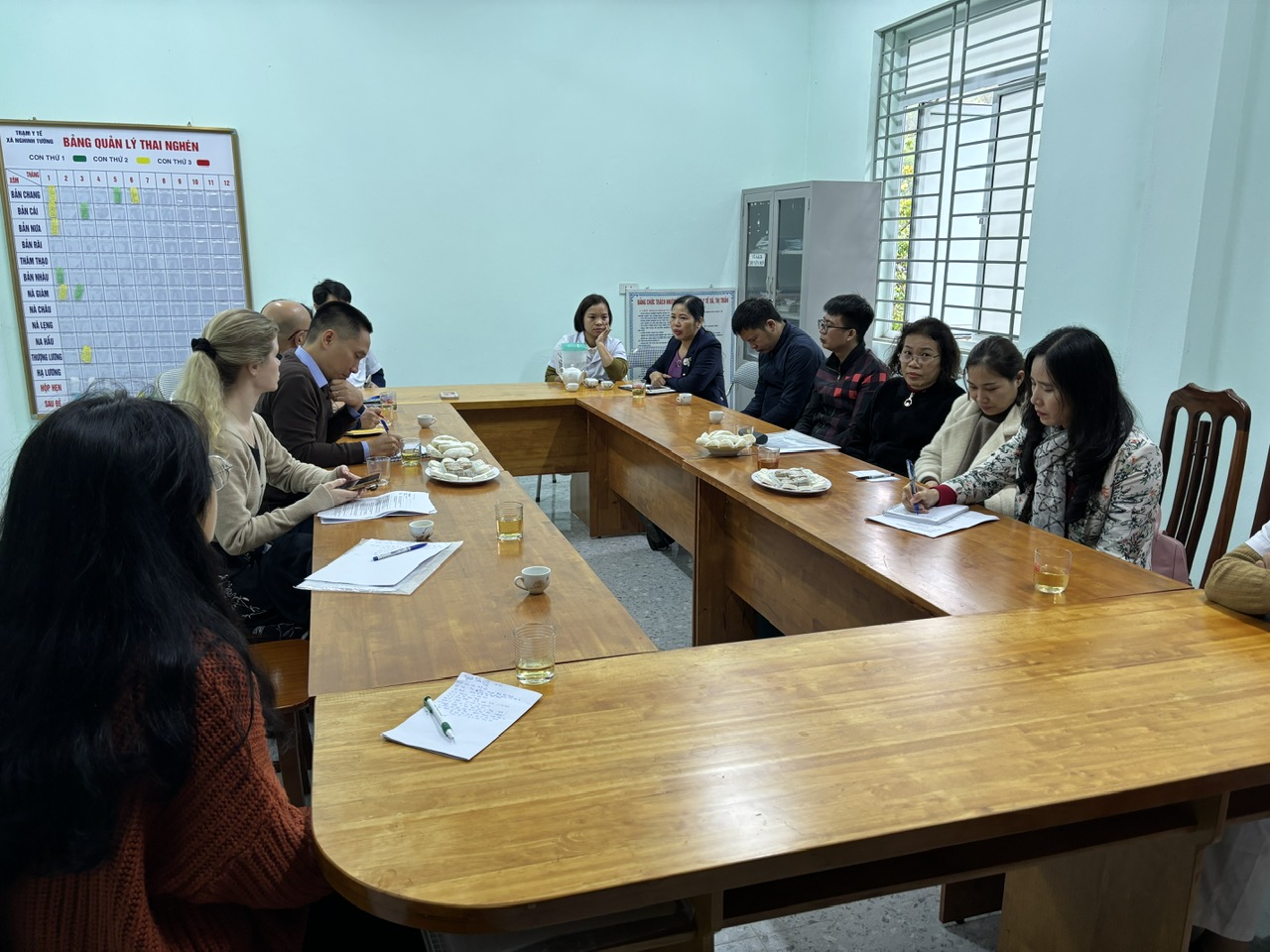Written by Admin on June 18th, 2025 in
dMOM SYSTEM
Vietnam made remarkable achievements on the Millennium Development Goals and the country is again making incredible progress on achievement of the Sustainable Development Goals, but inequalities in maternal, newborn, and child health (MNCH) between the ethnic minority (EM) and majority remains a major challenge.
In this dMOM project, our targeted population include ethnic minority women, women living in remote mountainous region, and women who could not access MNCH services due to the COVID-19 context. Based on discussions with experts and current experience from similar digital health projects of the Institute of Population, Health and Development (PHAD) and Simon Fraser University (SFU), we have determined that adapting the mMom SMS intervention to a smartphone app, with updated information, would be a more cost-effective and accessible way to scale up what have learned from the mMom project. Technically, the app can provide similar functions to the SMS version. Moreover, the app can provide more information as it’s not being limited within the 250 characters of text messages, and it can also provide more attractive Information, Education and Communication (IEC) messages in picture and video format. It can also reduce the cost of participation once it’s installed and registered properly as no one (i.e. women, health workers, the project, and Government) has to pay for the SMS fee. Our project is designed in an incremental way to ensure feasibility, acceptability and sustainability of this approach. To do this, it will focus on testing the feasibility of adapting the SMS-focused version to a smartphone app; and support complementary sub-projects that will explore additional technical innovations and the social conditions (including gender norms and relations) associated with scalability.
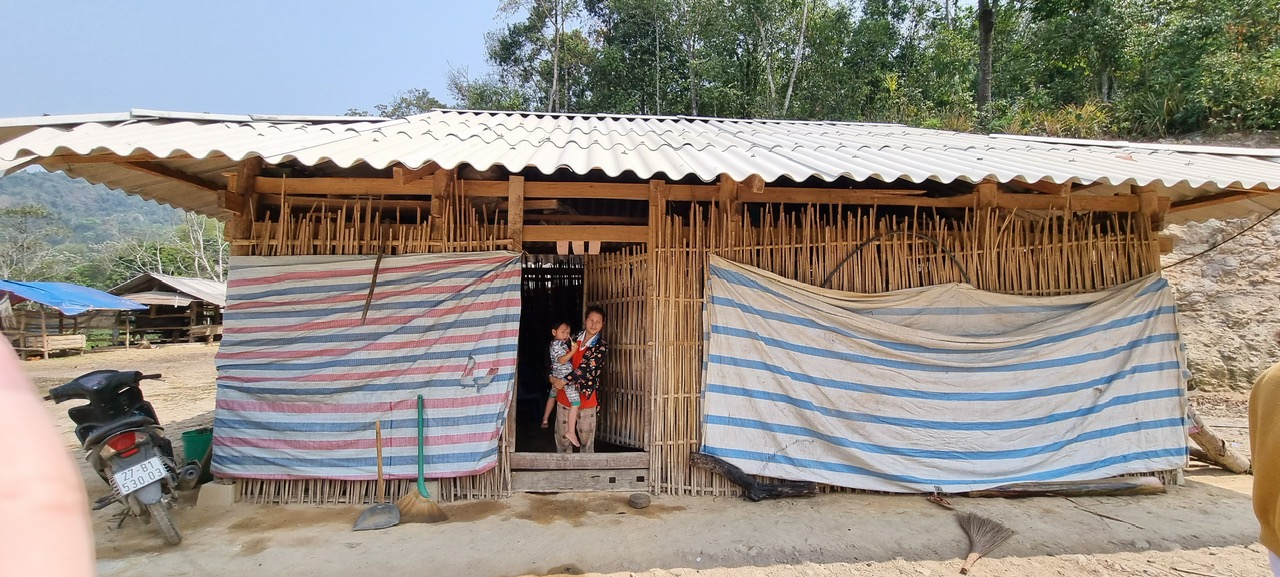
General objective: This project aims to develop an intentional strategy to sustain and scaleup the mMOM project, which was funded by IDRC (2013-2016), for improved MNCH behaviours and outcomes, including shifts in adverse gender norms, and enhanced agency of hard-to-reach women.
The specific objectives of the project include:
- To develop, pilot and assess the feasibility of a mobile-app as an alternative to the SMS intervention to give women more choices (i.e. using either SMS or app or both) to effectively access dMOM services, which have been proven to improve their health and well-being;
- To design a scaling up and out strategy to achieve the objectives of the mMOM program;
- To explore the feasibility of including more innovative technologies and algorithms, including AI and big data, for more tailored and timelier MNCH information;
- To explore participation of private sector as a financing and/or outreach mechanism to sustain digital interventions;
- To conduct an intersectional analysis that explores how the mMOM program is influencing intrahousehold and community power dynamics, opportunities and resource distribution among women and men; and
- To strengthen engagement and capacity of women, alongside their husbands and commune leaders, local heath leaders and workers, researchers and students throughout the design, development and implementation of the scaled solution to ensure the voices and needs of target women are being championed, and health informatics are being used more widely to promote that.
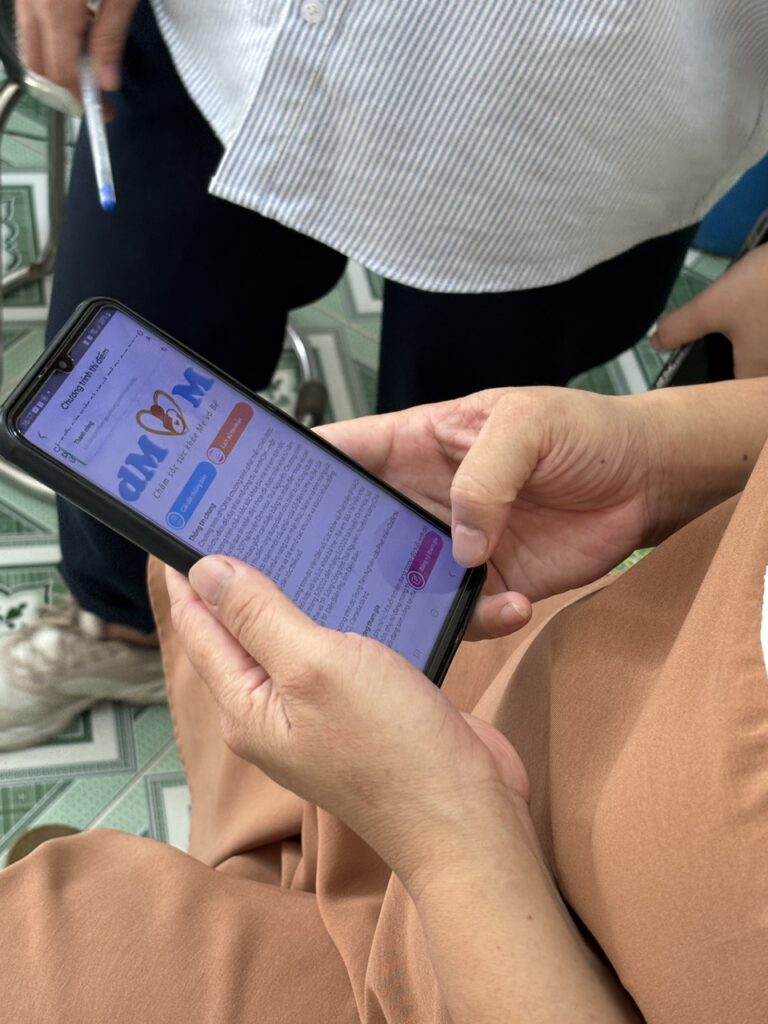
The dMOM project builds upon the earlier mMOM initiative by addressing its limitations and adapting to the evolving context, particularly in light of COVID-19. It significantly scales the intervention—expanding from 8 communes in 1 district with around 900 women beneficiaries, to 71 communes across 5 districts in 2 provinces, reaching over 9,000 women. This broader reach includes both rural and urban areas, acknowledging the pandemic’s impact on maternal and child health.
To enhance effectiveness, dMOM integrates a wider range of digital health (dHealth) tools, moving beyond SMS to include mobile apps for women and village health workers, along with AI and data modeling to support implementation and evaluation. The project also expands its message content to cover critical topics such as maternal mental health and depression during and after pregnancy.
For long-term impact and sustainability, dMOM ensures early and ongoing collaboration with the Ministry of Health—especially the Department of Maternal and Child Health—and will engage the media, explore private sector involvement, and consider alternative financing models.
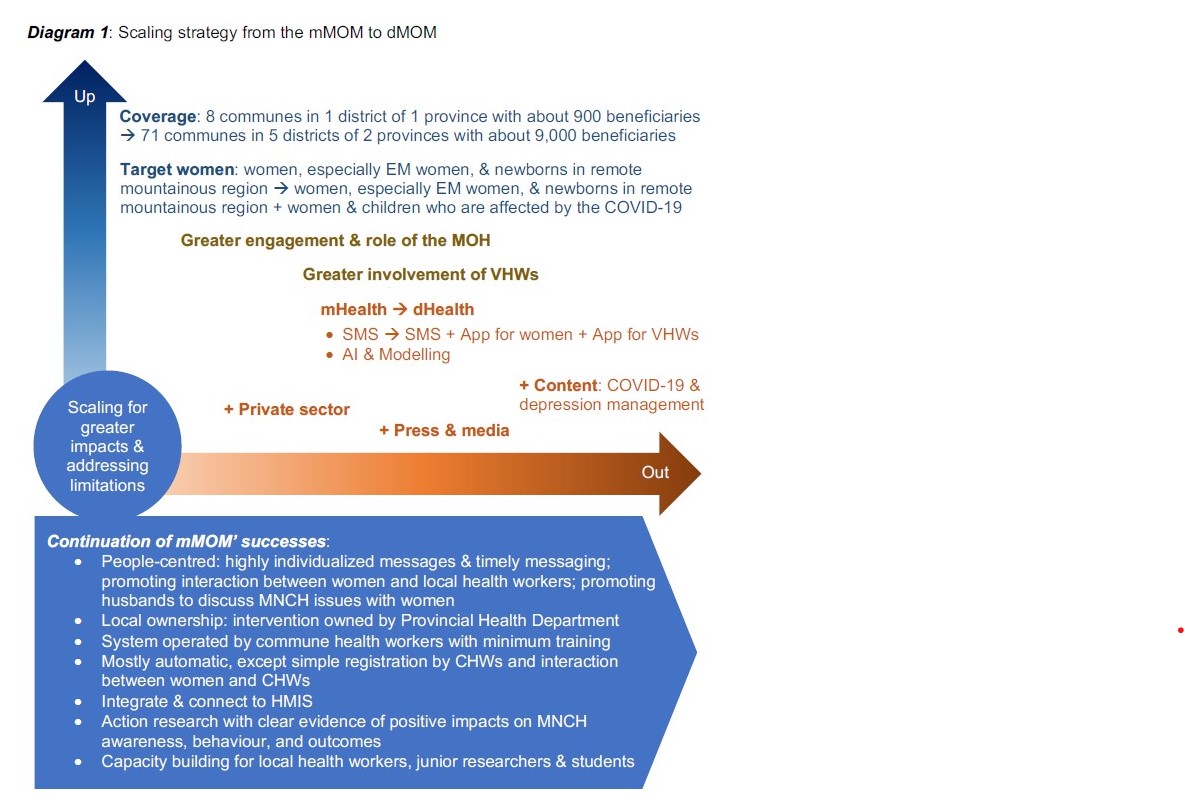
- People-Centered Approach: Embracing a personalized service delivery model, the project focuses on sending targeted messages at opportune moments to each individual. It fosters stronger person-to-person relationships between women and local health workers while facilitating open interpersonal discussions between husbands and wives.
- Ministry of Health and Local Health Ownership: The initiative is owned and endorsed by the MOH and local health authorities, with other project partners serving in supporting roles.
- Simplicity: Interventions are designed to be straightforward and easily implemented by local health workers, requiring minimal training.
- Automated Processes: With the exception of a simple registration process conducted by commune health workers at the outset, the system operates automatically, streamlining workflow and minimizing manual tasks.
- Integration within Larger HMIS: The project is seamlessly integrated into a broader Health Management Information System (HMIS) owned by the Ministry of Health, ensuring cohesion and compatibility with existing health infrastructure.
- Action Research: Research activities are structured around the interventions to facilitate meaningful improvements or changes in practices, fostering a dynamic cycle of inquiry and action.
- Capacity Building: The project includes initiatives aimed at enhancing the skills and knowledge of local health workers, junior researchers, and students, empowering them to effectively contribute to the project’s objectives and broader health outcomes.
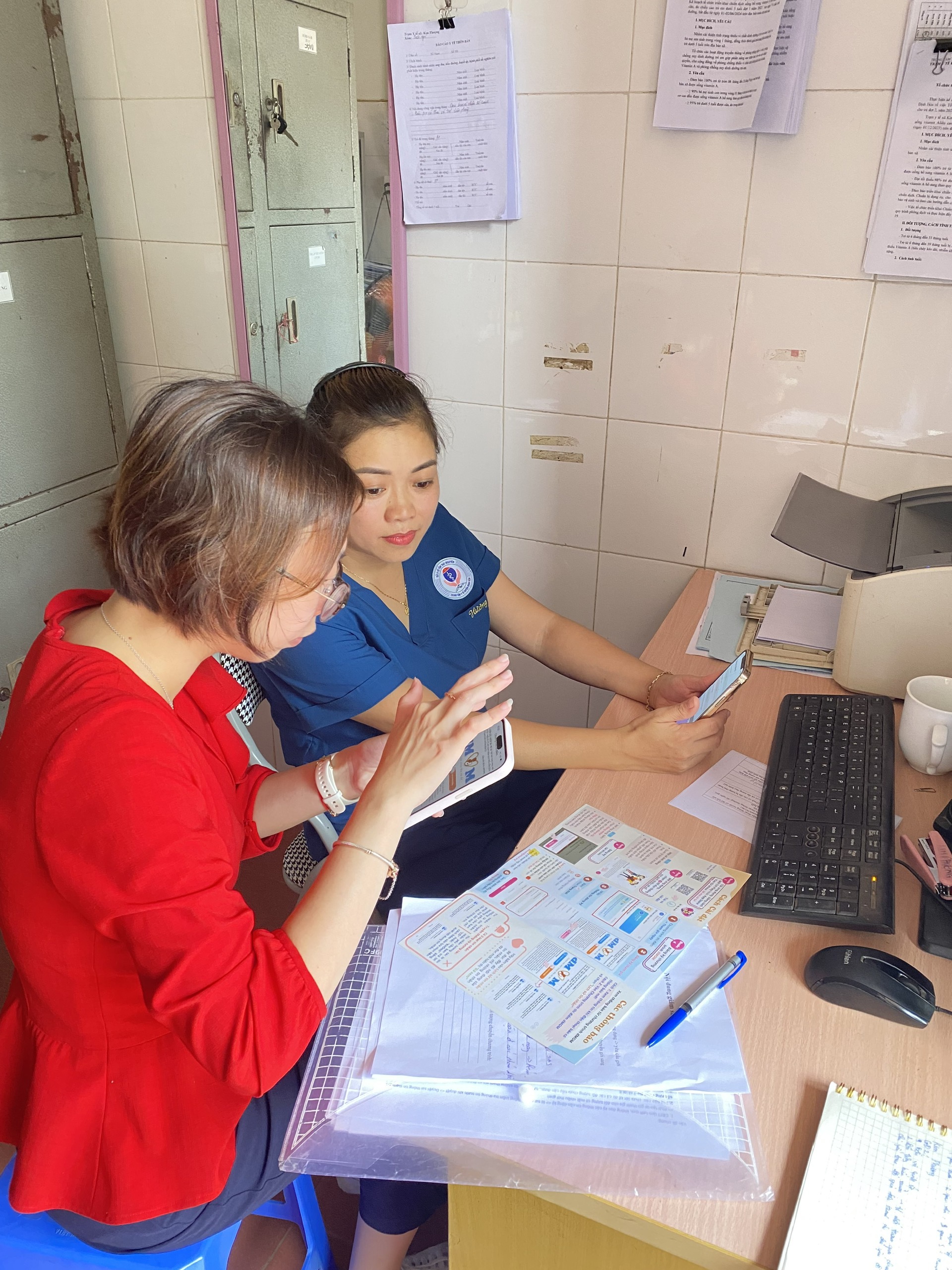
The beneficiaries of this initiative encompass:
- Hard-to-reach women: This includes ethnic minority women, those residing in remote mountainous regions, and women facing challenges accessing MNCH services due to the COVID-19 context.
- Under-5-year-old children of the hard-to-reach women.
- Commune health workers (CHW): The dMOM initiative is ancicipated to support CHWs in reducing their current workload and enhancing their effectiveness.
In addition to the beneficiaries, other target populations of the project consist of:
- Husbands
- Other family members
- Community leaders, local social organizations, and members of the community at large
The project aims to benefit approximately 9,000 women and children within its scope.
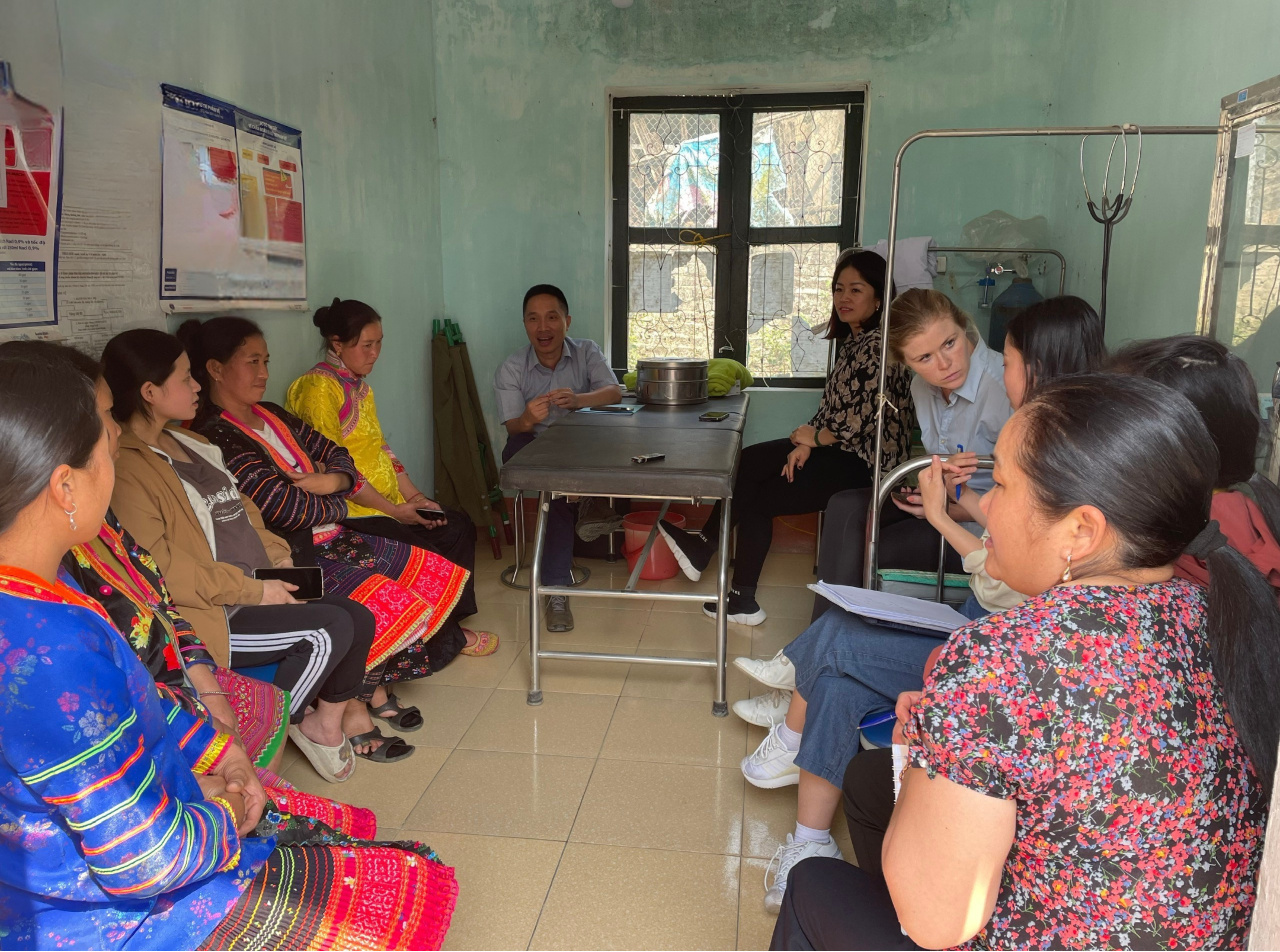
Preparation
The project will commence with preliminary engagement meetings involving key stakeholders at higher levels, such as the Ministry of Health, Provincial and District Health Departments. Subsequently, we will conduct meetings with local health organizations (e.g., women’s health service providers), local authorities, village leaders, and target groups including individual women and community groups (e.g., women union, EM advocacy groups). These sessions aim to enhance their understanding of the project and enlist their involvement in both its development and execution phases.
Update & develop IEC messages & materials:
The dMOM project will update and tailor the content of MNCH BCC text messages and IEC materials. This will be achieved through collaborative project meetings and comprehensive desk reviews involving a diverse team of specialists, including OB-GYNs, gender, ethnic minority, health equity experts, and the Ministry of Health (MOH). The aim is to ensure alignment with the latest MNCH guidelines of the MOH. The project also asks for the MOH’s permission to use their current IEC materials for dMOM project. (see IEC materials in Dashboard, IEC materials & photo gallery)
Training
Our emphasis lies in empowering local health workers to serve as implementers of the project. Our project team will conduct Training of Trainers (TOT) sessions for Commune Health Workers (CHWs) and personnel from provincial health departments. These trained individuals will then lead subsequent training sessions for Village Health Workers to carry out project activities.
dMOM interventions: <details are provided in a separated page>
The dMOM project will utilize both SMS and mobile app interventions to evaluate the feasibility of employing a mobile app as an alternative to SMS intervention, offering women more options for engagement. An equal number of communes in each study district will be randomly assigned to either the app or SMS intervention group.
dMOM research activities: <details are provided in a separated page>
dMOM includes a series of researches with 4 main ones:
- Feasibility & Scoping study
- Digital health uptake study
- Intersectionality study
- Scalability of dMOM interventions
Monitoring & Evaluation
The project’s Monitoring and Evaluation (M&E) framework consists of three components: regular M&E, mid-term evaluation, and final evaluation. Regular M&E activities encompass monitoring the functioning of the intervention system and tracking the participation status of the target participants. This also includes quarterly meetings to review project progress, achievements and challenges.
Capacity building
Capacity building is a main cross-cutting interest within the project. Training of Trainers (TOT) sessions will be conducted on mHealth, project management, and implementation for provincial health departments and district health department staff. These trained personnel will subsequently lead follow-up training sessions for health staff at the commune and village levels.
Encouragement will be extended to junior staff from provincial health departments, district health departments, and students from participating universities to engage in the project for on-the-job or hands-on training opportunities. Short courses covering digital health, mHealth, Health Management Information Systems (HMIS), AI for health improvement, and gender and ethnicity in health equity will be organized by project leads and consultants from provincial health departments and the participating university.
Furthermore, research staff and students will be incentivized and financially supported to utilize project data for their research endeavors. They will also receive assistance in submitting research papers to local and international workshops or conferences for presentation. Bursaries will be provided to Vietnamese graduate students to support their involvement in the project or to facilitate their pursuit of Master’s theses in related fields of study. Priority will be given to Master’s students and final-year PhD candidates, as they may be able to complete their degrees within the project timeframe.
Additionally, the project budget includes provisions for project staff to participate in local and international workshops, with a focus on attending and/or presenting project findings. Priority will be given to students and junior staff members. These presentations not only serve as a means for disseminating project findings but also offer Vietnamese researchers opportunities to network and gain international experience, particularly in the realm of digital health research.
Knowledge sharing
Knowledge is shared through publication and workshops. Project findings and lessons learned will be shared with varied audiences, including project participants, their families, broader EM communities, health and advocacy organizations, health authorities, government institutions, and funding bodies.
Knowledge translation activities will be implemented through multiple channels targeting these specific audiences, including workshops/presentations, plain language reports, visual media (i.e., printed infographics, visual storytelling through animation/short video), a website, social media marketing, peer-reviewed journals, and local and international conferences.
The dMOM project is being implemented in 72 communes in 3 districts and 2 cities of 2 provinces:
- Thai Nguyen: 23 communes in Dinh Hoa district, 10 communes in Song Cong city, 15 communes in Vo Nhai district
- Dien Bien: 12 communes in Dien Bien Phu city, 12 communes in Muong Cha district.
The tentative duration of the project is 36 months.
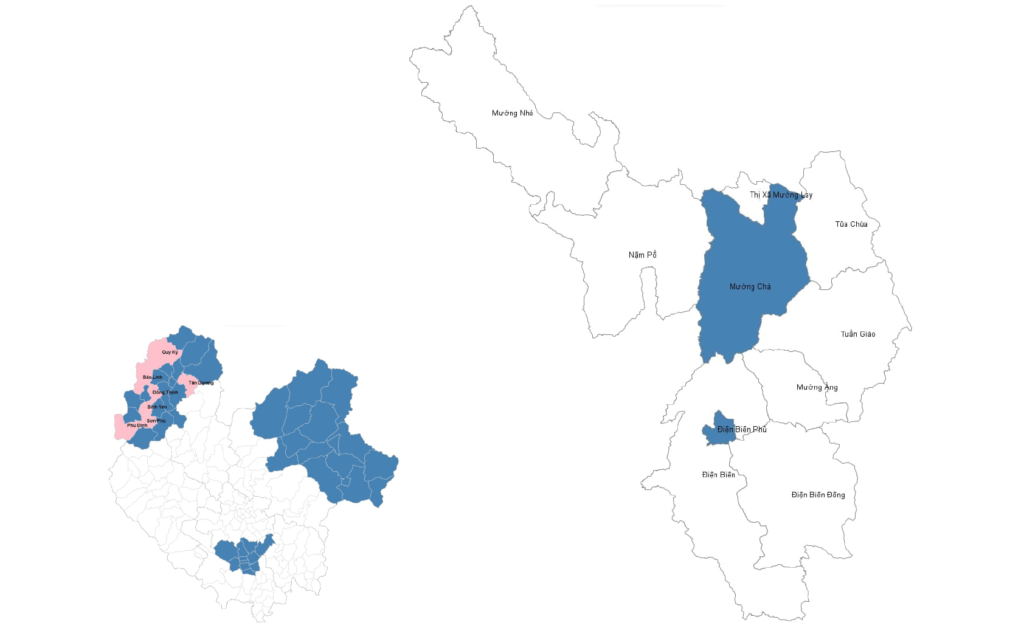
The project team is a large multi-disciplinary team of health managers and researchers from Ministry of Health (MOH), Thai Nguyen and Dien Bien Provincial Health Departments (TNHD & DBHD), Institute of Population, Health and Development (PHAD), Simon Fraser University (SFU), University of Health Network (UHN), Thai Nguyen Medical University (TNMU) and Thai Nguyen General Hospital (TNGH), Hanoi Medical University (HMU), Hanoi University of Sciences and Technology (HUST), Nossal Institute for Global Health (University of Melbourne), Goodlife Solutions Ltd, private obstetrics and gynaecology clinics, and public paediatric clinics. The team includes a mix of females and males. The project on its own, but also through leveraging these institutional relationships, strengthen organizational and individual capacities at partner institutions – including but not limited to capacities of emerging researchers and practitioners – particularly women.
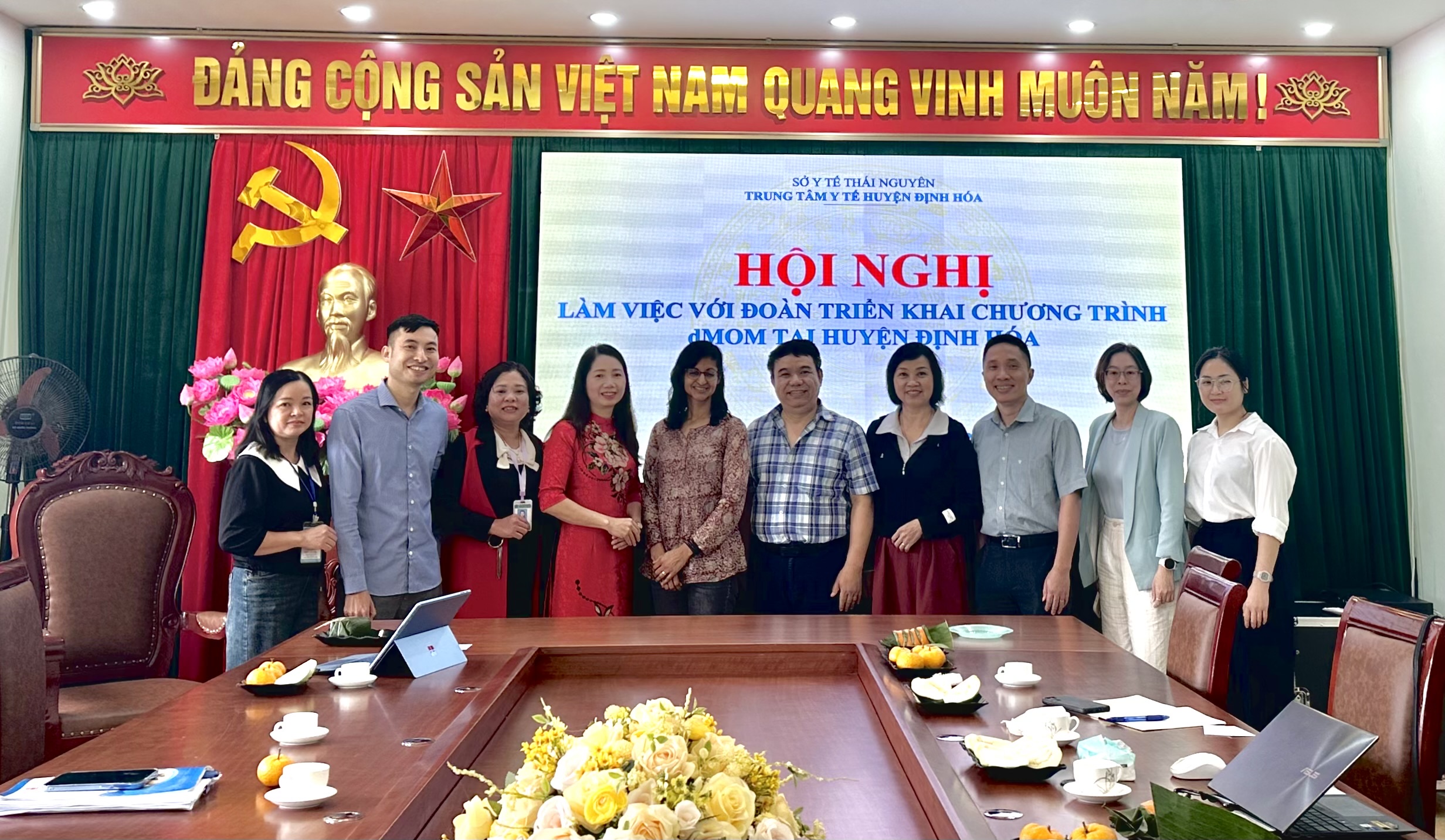
As the dMOM project concludes, it brings forth promising insights into the transformative potential of technology in maternal and child health outcomes. By using innovative digital solutions, we aim to provide suitable healthcare delivery, particularly in remote and hard-at-reach areas.
Moreover, our exploration of private sector engagement and novel financing mechanisms will provide knowledge on sustaining and increasing the reach of the interventions.
Our commitment extends beyond the project’s lifespan. Our next step is collaborating closely with the Ministry of Health to present our learnings into actionable insights. We aim to develop a comprehensive report or guideline for effective implementation strategies and best practices for scaling up e-health interventions in maternal and child healthcare nationwide.
